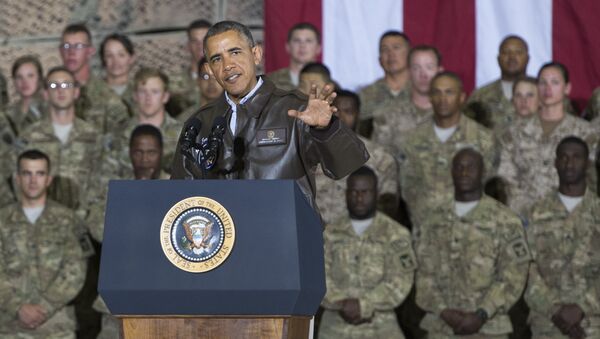However, a coherent US strategy in Afghanistan is still missing and the European allies are getting increasingly frustrated by the lack of clarity from Washington.
The Europeans have been eagerly awaiting the arrival of the US Defense Secretary Jim Mattis to hear what the US has planned for Afghanistan. They were promised a new US strategy by the NATO leaders meeting in May, but they may be disappointed by what General Mattis brought to Thursday's meeting. Speaking to the press enroute to Brussels, Mattis said he would brief the allies on US assessment of the situation in Afghanistan and his efforts to "fill in any gaps left in the strategy."
After the meeting Mattis told the press he was pleased with allies' willingness to contribute, whilst also placing some blame on the Obama administration for pulling out US troops too soon.
"We may have pulled our troops out too rapidly, reduced the numbers a little too rapidly, but the difference today is that the Afghan army is actually able to carry the fight and they've been carrying the fight for some time now so there's always new ideas you can come up with. There's never a lack of those. There's new opportunities and certainly the political will is there to carry this fight forward," Mattis sent.
So the Europeans will have to wait until those efforts bear some fruit. Mattis will have to return to Washington to "finish out some things," as he put it, before he'd able to present his plan for approval by President Trump.
For Trump, who during his election campaign promised to get America "out of the nation-building business," sending more troops to Afghanistan is another U-turn, and is reminiscent of the situation Barack Obama faced in 2009.
Obama's reluctant surge ultimately accomplished nothing, as many had warned at the time, and there are no reasons to believe that "Trump's surge" would be any different.
The United States have been fighting in Afghanistan for almost 16 years now, and at height of this longest war in American history there were over 100 thousand anti-Taliban coalition troops in the country. Yet, after billions of dollars and thousands of US and allied casualties the Taliban is believed to control over 40 percent of Afghanistan's territory.
These days NATO leads 13,450 multinational troops whose remit is to train the Afghan National Army and Security Forces.
Fifteen NATO members, including Britain, have agreed to commit more troops and money to this effort. The emphasis is obviously on the "Afghanization" of the war. But will it work? If "Vietnamisation" is anything to go by, it hardly would.
Great to meet SecDef Mattis @ #NATO: a place he calls his "second home". Thanks for your leadership in strengthening the transatlantic bond. pic.twitter.com/OCjHWSUwED
— Jens Stoltenberg (@jensstoltenberg) June 29, 2017
In his door-step remarks before the NATO defense ministers meeting Jens Stoltenberg praised the Special Operations Forces of Afghanistan as being "very professional." However, after some of the most sophisticated and deadliest attacks by the Taliban, which killed dozens of Afghan soldiers and civilians, it has transpired that the Afghan Armed Forces had been infiltrated by the insurgents.
"The politicization of the Afghan National Security Forces (ANSF) and the loose recruitment mechanism has practically paralyzed the ANSF, destroyed its intelligence and command structure, and shifted the war equation in Taliban and the Islamic State's favor", Ali Reza Sarwar writes in The Diplomat.
Compare this to the assessment of the Afghan army under Babrak Karmal in 1984, made by British diplomats and Western reporters on the ground.
To undermine the Afghan government of the day, the West spared no effort in arming and financing the Islamist mujahideen. Western "help" was channeled via Pakistan, and having been "skimmed" by the country's military, as the declassified papers reveal, was instrumental in the eventual rise of the Taliban.
A favorite tactic by the insurgents back in the 1980s was to enlist in the Afghan army or form a pro-government militia to get the weapons and turn them on the government troops.
Fast forward to the present day and the insurgents employ the same tactics and enjoy the same cross-border access from Pakistan as they always had.
Unless US and NATO secure Pakistan's cooperation in denying the Taliban safe passage and havens across the border, no amount of extra troops will help President Trump to come out a "winner" whom he claims to be.




